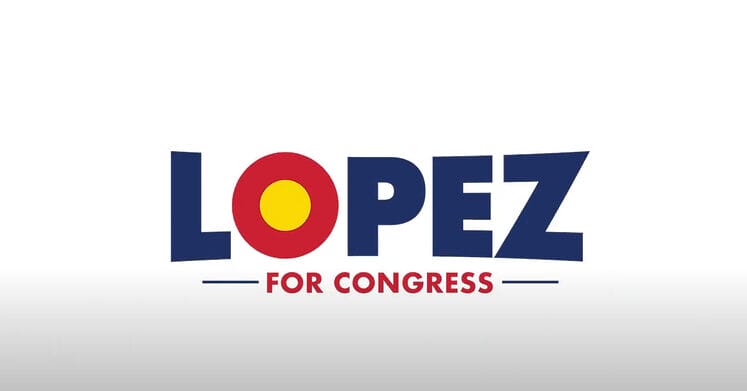What’s your favorite grocery chain, Safeway, Vitamin Cottage, King Soopers or Wal Mart? Do you favor AT&T over Century Link? Do you shop at Amazon, Macy’s, Walgreens or Furniture Row? What’s your preference at the end of the day, Denver Beer, Great Divide or Dry Dock? Do your taste buds melt when eating Panera Bread, Chick Fil A, McDonalds, or Seattle Fish Company fare?
Are you wondering why this is being asked and what’s the relevance? They all have a common thread.
The Colorado Office of Economic Development and International Trade reports annual data on The Enterprise Zone Program, a program established by the General Assembly to “provide economic incentives, access to capital, and a positive business climate focused on areas of high unemployment, low per capita income, or slow population growth.” The Enterprise Zone Annual Report for the Colorado Fiscal Year 2017 highlights read:
In the state’s fiscal year 2017, 4,426 businesses certified for EZ tax credits reporting $1.4 billion invested in qualified business personal property, making them eligible for $42.5 million in EZ investment tax credits. Investments in qualified renewable energy projects account for $259 million of the $1.4 billion qualified business personal property investment. Businesses invested $156 million to train almost 32,500 employees that work in the Enterprise Zones, earning them $15.9 million in EZ job training tax credits. To incentivize investment and registration of commercial vehicles in Colorado EZs, $13,663 in income tax credits were recognized on investment totaling almost $911,000.
… Certifying businesses reported 4,578 net new jobs incentivized by $5.76 million in New Employee Credits. … Businesses reported that they covered 1,357net new employees with a qualified health plan, entitling them to $1.36 million in state income tax credits.
The total business credits for Fiscal Year 2017 is $67,023,187. There is an additional $14,710,893 estimated Contribution Projects tax credit. “In addition to the Enterprise Zone business tax credits non-profit and local government projects leverage the Enterprise Zone Contribution Tax Credit to form public/private investment initiatives to improve economic conditions in distressed areas. … There were 490 active Contribution Projects at the close of the fiscal year.”
The business tax credits are listed with their perceived “return on investment” on the state’s website, choosecolorado.com as:
Investment Tax Credit: Investment in business personal property increases the business’ capacity. Taxes paid by the business on these purchases far exceed the amount of credits awarded for all tax credits under the EZ program.
Job Training Tax Credit: This tax credit encourages the development of a skilled workforce within the distressed community. Even if the business leaves the community, the skilled workforce typically remains as an asset to the local economy.
New Employee Tax Credit: Businesses adding and filling new jobs will reduce unemployment in the community. Additionally, state and local governments gain tax revenue from these employees.
Employer Sponsored Health Insurance Tax Credit: Businesses are motivated to provide a qualified health insurance plan to employees, potentially improving community health and reducing public health cost.
Research and Development Tax Credit: Increased investment in research and experimentation supports an innovative economy. An R&D focused business that sells products, services, or intellectual property will bring outside dollars into the local economy.
Vacant Commercial Building Rehabilitation Tax Credit: This tax credit encourages the revitalization of dilapidated building and blighted areas, bringing new businesses and employees to the community. State and local tax revenues will increase.
Commercial Vehicle Investment Tax Credit: This incentive encourages businesses to register new commercial vehicles in Colorado where they will pay licensing and registration fees, as opposed to these being registered in other states with lower fees.
The Economic Development Commission is composed of 11 members, five members are appointed by the Governor, and three members appointed by each of the House and the Senate. This commission “approves incentives from the economic development funds to public and private entities throughout the state to help existing businesses expand and new companies locate to Colorado.” The most recent meeting minutes posted to their website pertains to July, 2019. Two examples of Job Growth Incentive Tax Credits are discussed
- Project Mirage is an Australian technology company that was founded in February, 2017. The company launched its US operations in New Jersey in December 2018.
… The company is relocating a North American headquarters for its engineering, operations, business development, and customer support units. Project Mirage is estimated to employ 211 people over the next eight years at an average annual wage of $86,967…
Staff is requesting $4,144,973 in performance-based Job Growth Incentive Tax Credits over an 8-year period. This is contingent upon the creation of up to 211 net new full-time jobs at 100% of the County’s AAW the Company decides to locate, in support of this project.
- Project Salvo is an American, Fortune 500 Company that is considering expanding the operations of one of its wholly owned subsidiaries currently located in Colorado. The company behind Project Salvo is a global manufacturer and technology provider founded more than 100 years ago. The company has over 200 manufacturing facilities around the world and has a sales presence in over 150 countries.
The company’s business unit looking to expand was founded in Colorado, currently employees nearly 700 individuals in the state, and manufactures advanced flow measurement devices that serve customers in the industrial, commercial, and residential markets. … Project Salvo’s expansion is estimated to employ 252 people over the next eight years at an average annual wage of $109,250, which is equivalent to 167% of the average annual wage in Boulder County, where the project would likely occur. These jobs will be spread out across management, engineering, sales and operations.
Staff is requesting $4,279,629 in performance-based Job Growth Incentive Tax Credits over an 8-year period. This incentive is contingent upon the creation of up to 252 net new full-time jobs at 100% of the County’s AAW the Company deices to locate, in support of the project.
Both “sweetheart deals” were approved the evening of July 17th; now we will wait to see if they are received. Additionally, it was announced that ViewRay chose Colorado. ViewRay, relocating from Cleveland, is now eligible for a Job Growth Incentive Tax Credit of $9,006,832 for 274 net new full-time jobs that were previously approved by the commission.
The Denver Business Journal recently reported that in their September, 2019, meeting, COEDIT unanimously offered to Project Feline, a private Bay-Area tech company, up to $9 million in job growth incentive tax credits. And at the beginning of August the DBJ’s article regarding VF Corporation, a Fortune 260 company with a market cap of $34.8 billion, states, “VF, which received a potential $27 million in incentives to consolidate it headquarters and brand offices here, is bringing half of the employees with it from other states who will fill its 800 tax-subsidized jobs—and hiring about 40 percent of the people to fill vacant jobs so far from outside the Denver area.”
We hear many times that individuals should not be dependent on government and instead be financially independent and stable. This basic premise should be applicable to businesses as well. Corporate welfare is running rampant in the state of Colorado. Some entities will receive, and others will not. We can refer to those on the receiving end as the “preferred chosen ones.” In reality, the state government is choosing winners and losers.
Granted, there are probably some entities where they are being forced to take the tax credit (remember banks not wanting to take money during the Great Recession) which leads to control by the government. There are some businesses that will participate in the program to stay competitive with their peers who are taking advantage of the program. Then there are the entities that need the money to stay solvent. And, finally, we have the ones there for the taking. If you look at total Colorado annual average employment for the year 2017, 2,609,770, and total Colorado GNP of $347 billion, one must ask, do we really need to give these incentives out to corporations and tax-exempt organizations?
It would be more productive for all Colorado residents for the state to cut tax rates across the board and let the businesses operate without government interference and favorability. There is no reason for state government to be involved in the consumer goods, communications, technology, retail, beer, fast food, etc., industries. The business owner, with reduced taxation, can use the extra funds to reinvest in their business, creating more jobs and increased state tax revenue due to additional operational revenue and payroll expenses. This is especially beneficial to the small business owner who very rarely would be eligible for these tax credits. And we eliminate all David vs. Goliath scenarios. Companies voluntarily become active in a free market innovating and taking risks with no guaranteed profits. There is no reason to grant large corporations an unfair advantage over small competitors.
The following chart from a Colorado Sun article lists the top twenty business as recipients of tax credits through the Enterprise Zone program from 2013-2018. You will note that there is no “David” present.
Business Tax Credits
Suncor Energy $11,192,379
United Airlines $11,147,681
Northern Colorado Wind Holdings, LLC $ 8,766,907
Anadarko Petroleum Corporation & Subsidiaries $ 8,743,643
Leprino Foods Company $ 8,507,518
Comanche Solar PV LLC $ 7,589,025
BNSF Railway Company $ 5,002,063
Xcel Energy $ 4,704,363
Whiting Petroleum Corporation $ 4,333,175
Encana Oil & Gas $ 3,851,306
Kinder Morgan CO2 Company LP $ 3,496,782
Walmart $ 3,412,461
Union Pacific Railroad Company $ 3,342,868
Hunter’s Ridge Energy Services $ 3,244,832
Verizon Wireless $ 2,986,243
Bill Barrett Corporation $ 2,896,347
Century Link $ 2,547,998
Presbyterian-St. Luke’s Medical Center $ 2,539,085
Rocky Mountain Steel Mills $ 2,414,895
Another benefit to getting the state out of the tax credit arena is that the number of bureaucrats implementing the program would be eliminated. The reduced government payroll and benefit packages would be a tremendous savings to the state. This bloating of the state government is unnecessary and costly. In the Fiscal Year 2017 report it cites many activities to be performed by state bureaucrats:
The Enterprise Zones were re-established effective January 1, 2016 per statutory requirement … to: gather eligibility data; engage other state agencies, economic development partners, county officials and community leaders; establish and run an application process; and prepare the Economic Development Commission that ultimately approved 16 statutory Enterprise Zones and 19 zone administrators to support economic revitalization in the newly established EZs.
It is very important that we keep our eyes on state, county and city governments. This is just a small listing of carved out tax advantages for companies at the state level within the Colorado Office of Economic Development and International Trade. We need to set all businesses free of government interference, favorable or not. We need to demand no more corporate welfare, including tax credits. Let’s not expand the economic longevity of one business at the detriment of another. Let’s not forfeit one homegrown business in order to bring one business to Colorado ground. Let’s not ask individual taxpayers to fill deficits resulting from tax breaks for corporations. No one is “entitled,” and this includes all businesses.









Responses